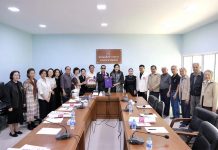
At the recent High-Level Dialogue on Financing for Development during the 78th session of the United Nations General Assembly, attention was given to the role of global financial architecture in meeting Sustainable Development Goals (SDGs).
Prime Minister and Finance Minister Srettha Thavisin called for reforms in international financial systems to facilitate more inclusive development funding. He underscored the importance of three core issues: the role of developing countries in international financial institutions, effective debt management, and risk mitigation concerning increased indebtedness.
To generate actionable recommendations for development funding in Asia and the Pacific, the Thai government, in association with the Ministry of Foreign Affairs and UNESCAP, will host a seminar on October 2nd, 2023, titled “Sustainable Finance: Bridging the Gap in Asia and the Pacific.” The event aims to improve regional development funding comprehensively.
Thailand has also committed to financial sustainability by issuing Sustainability Bonds since 2020 and plans to introduce Sustainability-linked Bonds next year. An initiative known as ’Thailand Taxonomy’ is in development to align investment activities with global sustainability standards. Furthermore, the country supports the expansion of multi-sectoral development banks to bolster capital for various projects and address regional liquidity crises.
The Prime Minister announced Thailand’s ambitious plans for environmental sustainability, including a roadmap to phase out coal usage by 2040 and a significant reduction in greenhouse gas emissions by 2025. These goals have been incorporated into the National Energy Plan, with a focus on transforming the transportation sector and ramping up domestic electric vehicle production. In an effort to mitigate climate-related vulnerabilities and improve the livelihoods of Thai farmers, Thailand is adopting sustainable agricultural practices.
The nation has set a goal to expand green spaces, aiming to cover 55% of its total land area by 2037. The Prime Minister expressed gratitude for the support from the United Nations Secretary-General and reaffirmed Thailand’s resolve to reach these environmental and financial targets, closely aligning with the universal aim of net-zero greenhouse gas emissions by 2050. (NNT)






